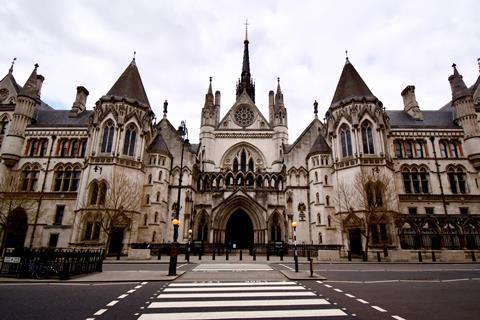The Danish tax authorities are to face a massive costs bill after their claims in England and Wales against more than 100 defendants fell at the first hurdle last week.
Mr Justice Andrew Baker, sitting in Skatteforvaltningen (The Danish Customs And Tax Administration) v Solo Capital Partners LLP & Ors (Costs), ruled it would be unjust to apply the default rule potentiality limiting cost recovery by the defendants to proportionate costs. The defendants will also not be required to prove the reasonableness of the costs incurred in fighting the claims.
The judge said the ‘just outcome’ was that he make no reference to proportionality in his ruling, and that it should be for the claimant to show that costs must be disallowed as unreasonably incurred.
He added: ‘It is fair to presume in all the defendants’ favour that admissible cost in fact occurred was reasonable, requiring SKAT to show otherwise for any item or amount of cost to which it objects.’
The case involved more than 100 defendants facing a bid by the Danish national tax authority (SKAT) to recover £1.5bn paid out in dividend tax reclaims between 2012 and 2015. The authority alleged it was wrongly induced to make the refunds, but the High Court last month dismissed all the claims on the grounds of a preliminary issue, ruling that Denmark was seeking to enforce a revenue law claim in an English court, which was not admissible under the Revenue Rule.

In his subsequent costs ruling, the judge pointed out that many of the defendants were accused of fraud, conspiracy or dishonesty which could seriously damage professional reputations. He said SKAT had been ‘openly on the lookout’ for evidence to upgrade its case. Although he did not criticise this approach, he ruled this made it appropriate for costs to be assessed on the indemnity basis
The judge said the litigation had been brought and ‘aggressively pursued by a sovereign state with a willingness to expend effectively unlimited resources’. This was litigation that was politically as well as financially motivated, he noted.
‘SKAT prosecuted the proceedings, as it seemed to me, without any sense that cost should be constrained by what was proportionate to any given task,’ said the judge.
‘SKAT was entitled to bring litigation on the scale it did, making the allegations it made and pursued in the way it was pursued, having that consequence. But having lost, and even though the loss was not because its allegations of serious wrongdoing have been found wanting on the facts, in my judgment it would not be fair for SKAT to be allowed to limit its liability in costs by arguing that costs incurred by defendants had been disproportionate.’
The claimant has indicated their intention to appeal last month’s preliminary judgment.
This article is now closed for comment.



























9 Readers' comments